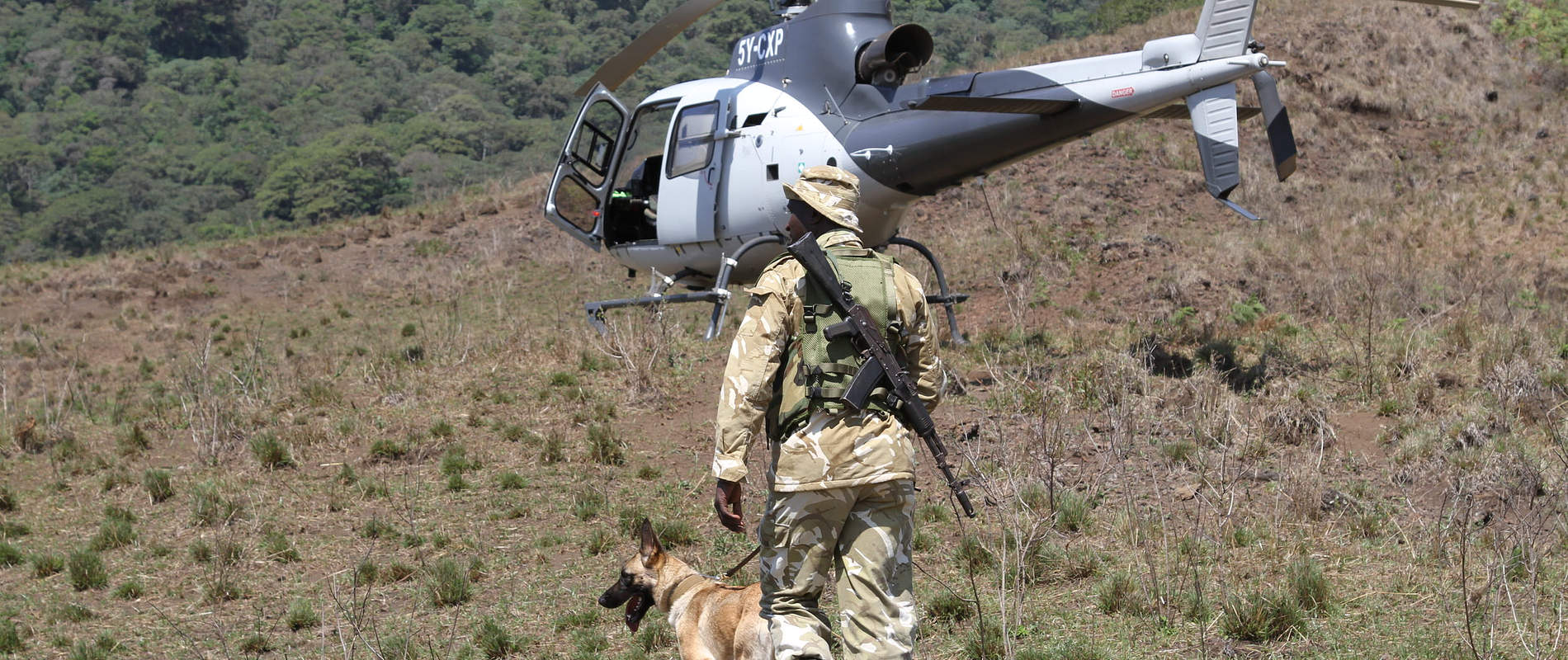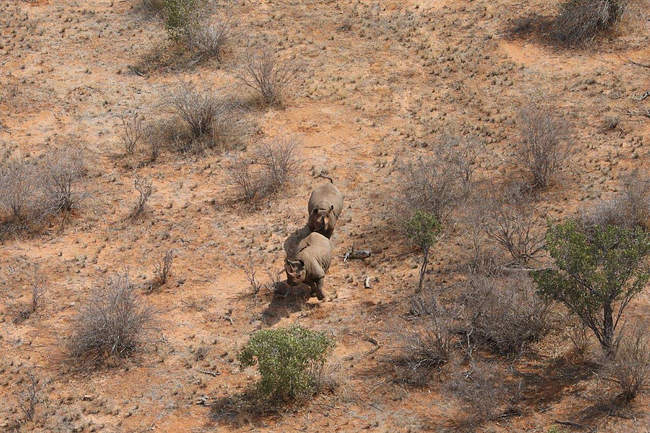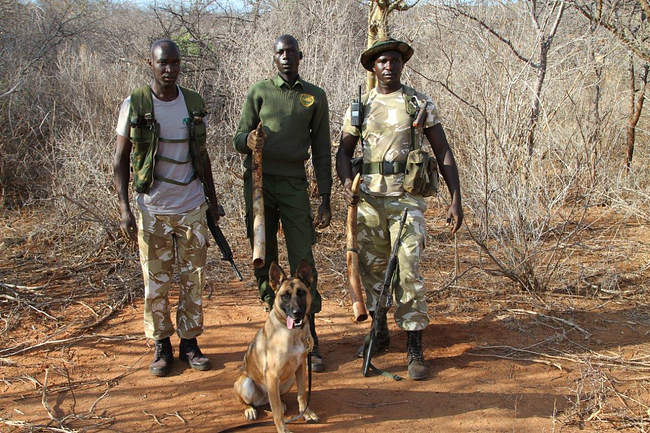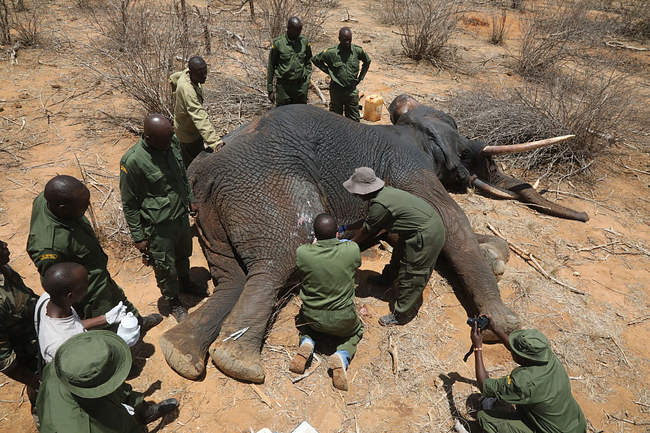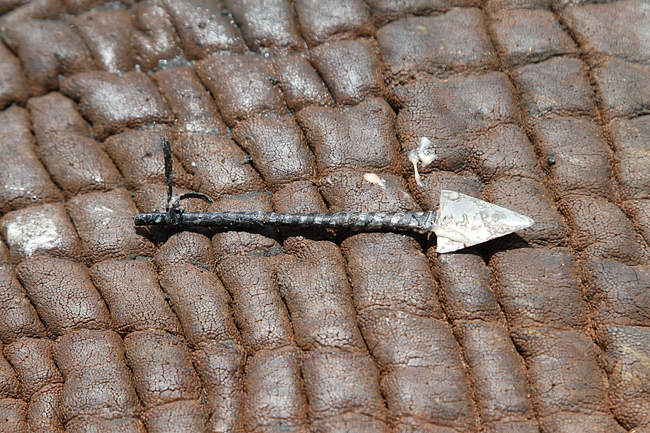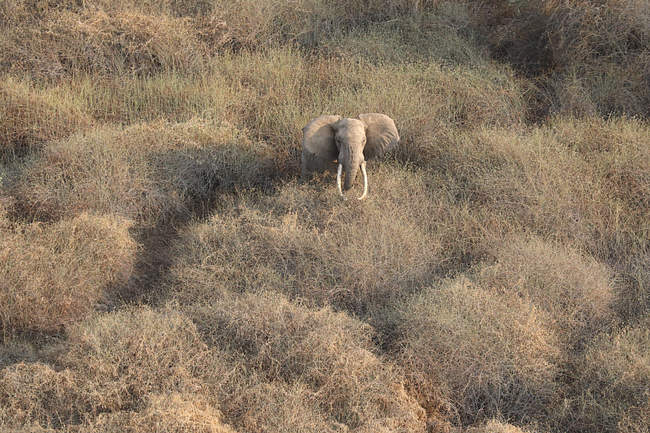Another busy month for the Aerial Unit in September, although there were only a few poaching incidents recorded, which is always positive. Charcoal kiln sightings were relatively uncommon in September with only 3 kilns being identified, along with a single charcoal sack on a separate patrol.
This time of year, towards the end of the dry season, Tsavo East and West National Parks historically face overwhelming levels of livestock incursions, but thanks to a concerted effort between ourselves and other NGOs' aerial presence and consistent follow-ups by KWS, there is comparatively very little livestock still making its way into Tsavo East. Unfortunately, the numbers of livestock in Tsavo West are still at unacceptable levels. Average patrols between Lake Jipe and Losoito to the north observed around 5,000 head of livestock as well as several bomas where livestock is being held overnight within the Park.
Like August, fires continued to burn in the Chyulu Hills, and our helicopter was deployed for one day to assist in positioning men, supplies and water to fight the fires on the ground. The remainder of the fires appeared to be only affecting grass and were extinguished naturally before causing significant damage to the cloud forest.

As for veterinary treatments, two cases involved the Aerial Unit in September. When an injured bull elephant presented itself at the Ithumba Stockade with what appeared to be an arrow wound high on its right rear leg, one of our planes flew immediately to Voi to collect KWS Vet Dr. Poghon and his assistant of the SWT/KWS Tsavo Veterinary Unit. Dr. Poghon was able to remove a poisoned arrow as well as several kilos of necrotic flesh from a large abscess on the leg. These actions undoubtedly saved the elephant's life, as the embedded arrow would eventually have led to septicaemia. Another treatment was attended to on Rukinga Ranch where an elephant had found its way into a wire snare, which had tightened around the neck, face and ear. The snare was removed, and the wound thoroughly cleaned out before administering anti-inflammatories and antibiotics.
To the south of Rukinga Ranch, on Taita Ranch, a young orphaned elephant calf was rescued after it had been sighted by a pilot from Wildlife Works in the company of five bull elephants. With the help of the SWT helicopter, the young milk-dependent calf was separated from the bulls and then led to a rescue team on the ground that loaded it into a vehicle and transported it to our Voi Reintegration Unit where it continues to thrive. Another young calf found alone and in a dehydrated and totally collapsed state in Tsavo East, was also rescued with assistance from a Trust helicopter and transported to the Nairobi Nursery. Sadly, the recumbent and far gone baby didn't respond to the IV fluids and died within hours of arrival.
The most dramatic rescue experienced for a while by the teams, involved a young rhino calf this month. The Senior Warden of Tsavo West requested that the SWT helicopter urgently assist in rescuing the rhino calf, which had been spotted alongside its dead mother. It was a long mission with several failed attempts to rescue the slippery calf but just as daylight was running out a last-ditch effort quickly unfolded. With a Super Cub circling high keeping eyes on the rhino, the helicopter landed in a tiny clearing and dropped off Ben, one of our Canine handlers, and Bakari the KWS Company Commander, who would make a final attempt at the capture. The helicopter lifted and was quickly guided back onto the rhino by the Super Cub and thankfully it was running towards Ben and Bakari's position. Seconds later Ben spotted the rhino and he pulled off a spectacular tackle. Holding onto its midriff, he was dragged several metres through the bush before the calf was brought under control.
The team then secured the understandably frightened animal by putting a blanket over its head to restrict visibility, gently stuffed socks in its ears to block out the noise and tied its legs together. Once the ground crews arrived on site the calf was carried though the bush and loaded onboard the helicopter, with 3 rangers holding onto the feisty passenger. This was a fantastic effort between KWS, SWT and TT in locating and rescuing this vulnerable calf under difficult conditions. Ben and Bakari's brave actions undoubtedly saved the day.
